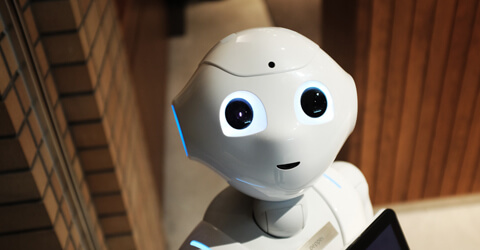As the world is slowly advancing towards Artificial Intelligence (AI), we can see incredible changes shaping up the workforce and business in general. AI holds vast potential to unlock discoveries we haven’t yet conceived, including cutting out repetitive tasks from our lives and helping us speed things along. One of the most significant factors of AI has to be the time saved. The adoption of AI will only continue to grow as business leaders continue to understand why investing in AI tools will remove unnecessary work from their plates.
Here are four areas where we think AI will impact the most:
1. Artificial intelligence used to automate boring tasks
After years of experimenting with artificial intelligence, companies are now deploying robust AI-based systems. The impact on the workplace will be substantial. The World Economic Forum cites that automation will supplant about 85 million jobs by 2025. However, the organization says there is nothing to worry about since its analysis anticipates the future tech-driven economy will create 97 million new jobs. Currently, approximately 30% of all tasks are done by machines—and people do the rest. AI can make remaining jobs more productive and create new ones. The Global Services Location Index found that, on average, one new automation management position is created for every four jobs that automation replaces.
One reason AI is hitting the mainstream is its increased availability and ease of adoption. Leading technology firms now offer a variety of AI-based applications and AI-as-a-service. Most of these offerings use natural language processing and image analysis accessed through simple application programming interfaces (APIs), so no deep AI expertise is required.
AI has also now replaced digital personal assistants that translate speech in real-time, chat and engage with customers, analyze sentiments in text, and even create news articles.
2. The online B2B customer experience will get more accessible and more effective
Anyone who shops online as an individual consumer has gotten used to an easy and enjoyable experience. That raises the expectation for the online business-to-business (B2B) experience and looks and feels similar to the business-to-consumer (B2C) model. As B2B firms seek growth, they want more effective and efficient interfaces to drive sales and customer value by improving the entire customer journey and making it as user friendly as possible. Consequently, B2B companies reimagine the customer experience beyond a traditional focus on one-way sales and marketing and explore new ways to make it happen.
3. AI Smart Building Tools
AI has a seemingly endless array of use for business. Let’s start at the office itself. Companies can now utilize AI tools to employ ‘smart building’ techniques to track their offices’ energy usage for improved efficiency. For example, AI-based innovative building tools allow leaders to turn off all office facilities that are not utilized at night and on the weekends and do so remotely. They can analyze energy usage month-to-month to catch differences as well. With practical AI tools in place, they can better access analytics and forecasting tools and methods to uncover ways to keep costs down.
4. Cybersecurity has improved defences against breaches and attacks
High-visibility data breaches, including those at Facebook in 2019, make risk-based and multi-factor authentication must-have forms of cybersecurity. Risk-based authentication works in the background to assess whether a person attempting access is authorized. Multi-factor authentication requires users to present two pieces of evidence that they are legitimate. Combined, these measures are a strong barrier against breaches.
Beyond breaches, system-wide attacks on critical national infrastructure are expected to grow in the coming years. Among the technology that can combat attacks is AI and machine learning (ML), which can help automate currently labour-intensive, repetitive threat-detection tasks. It will not be a cure-all, but it will boost threat detection and free staff to focus on other things.
In conclusion, we would like to leave you with a quote by Amit Ray, AI Scientist, Author of Compassionate Artificial Intelligence, “As more and more artificial intelligence is entering into the world, more and more emotional intelligence must enter into leadership.”







